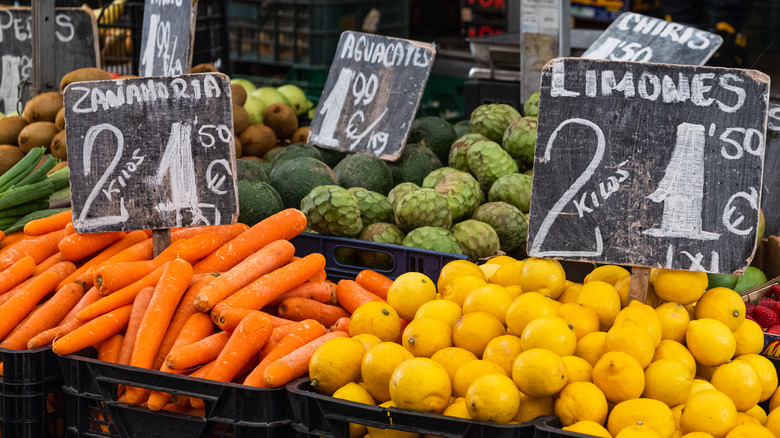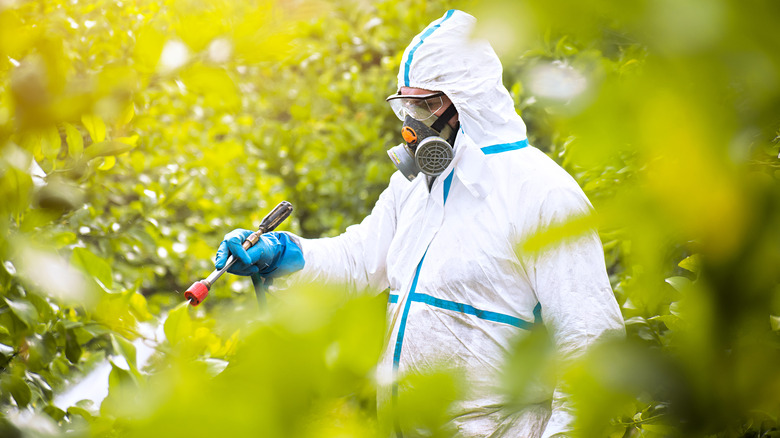New Report Says The EU May Have Miscalculated The Pesticides In Its Food
ABC News reports that a new study by the Pesticide Action Network Europe found that the European Union miscalculated the amount of pesticides found in their produce. The report was countered by a European Commission official, who stated that the increase of pesticides found in food was due to the improvement in methods for discovering pesticides that were previously undetectable back in 2011, the year they began collecting data.
The Pesticide Action Network offers some granular details from the study. In kiwi, for example, residue was found on only 4% of the fruit 10 years ago. Based on findings from this new study, 32% were found contaminated in 2019. Cherry contamination rose to 50%, up from 22% in 2011.
According to The Guardian, the PAN report runs counter to the European Commission's claims that there was a 12% drop of the use of hazardous pesticides in 2019. But iDiv ecologist Dr Guy Pe'er believes that the quantity of pesticides used doesn't tell the whole story, insisting that the impact is the more important measurement, telling the British broadsheet, "nowadays you can kill a lot more with a lot less material."
EU may not ban certain pesticides
U.S. environmentalists often hold up the EU as a model for regulation. According to a 2019 report published in Environmental Health, one-quarter of the pesticides used in the U.S. are banned in the E.U. (via Global Agriculture). Science News notes the EPA prefers the industry instead phase out dangerous pesticides. This often keeps them on the market longer, says researcher Nathan Donley, noting a voluntary phase-out is perceived as driven by economics rather than safety.
However, similar to the U.S., the E.U. has not outright banned some of its most toxic pesticides, instead listing them as Candidates for Substitution. According to the European Commission, this grouping does not constitute a ban. Instead, authorities use it to determine if alternative methods that are less toxic to humans and the environment can be used to protect crops. The pesticides on the list are still "deemed safe" by the government and are available for purchase.
Environmentalists are further concerned that the food crisis due to the war in Ukraine will only make regulations on toxic pesticide use laxer. Olivier de Schutter, a U.N. special rapporteur on extreme poverty and human rights and co-chair of IPES-Food, told The Guardian, "Unfortunately, now with the food crisis that has developed, we have very strong pressure, particularly from farmers unions who say we need to boost production to compensate for the disruption to supplies of wheat, vegetable oil and maize from Ukraine and Russia."

